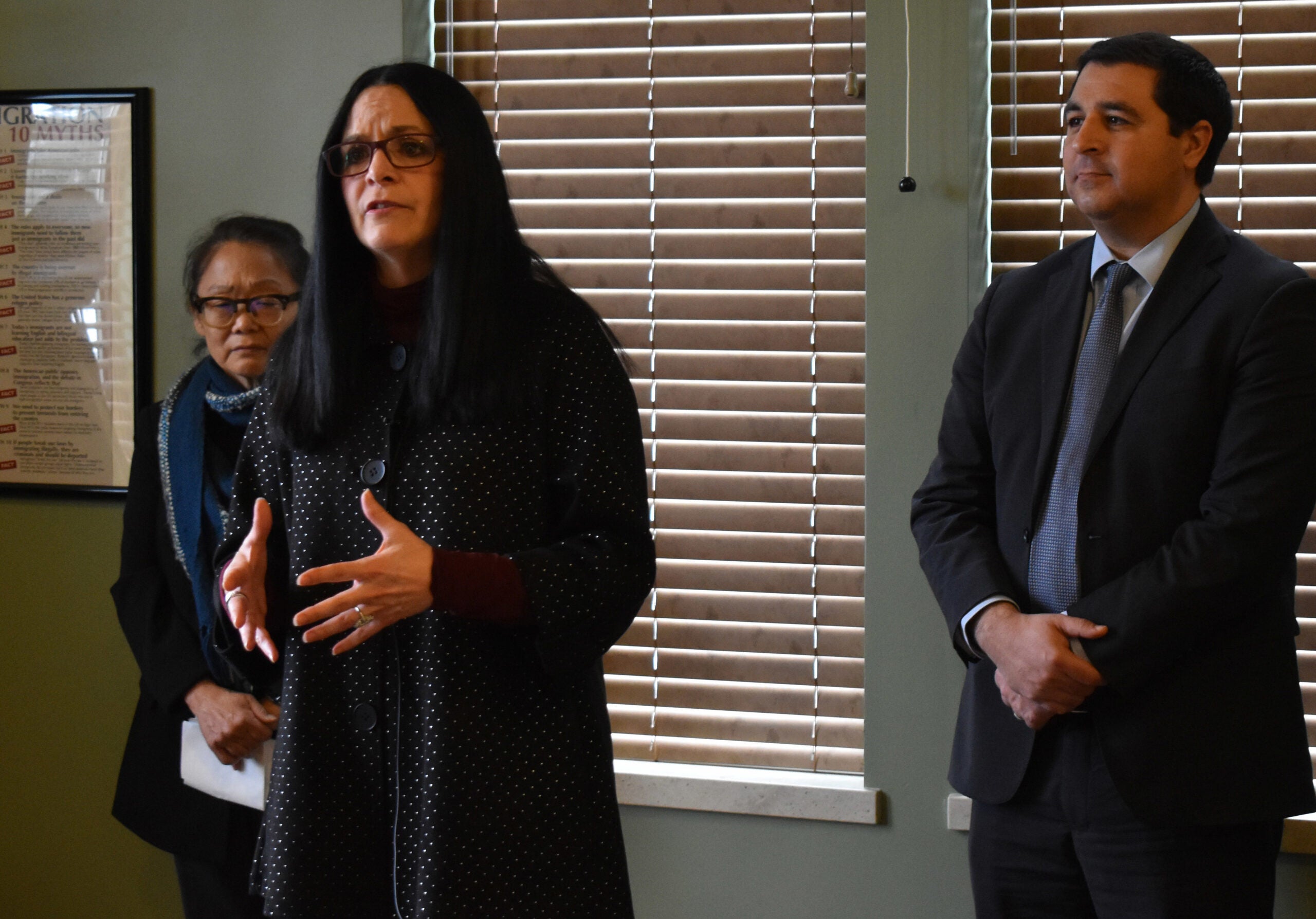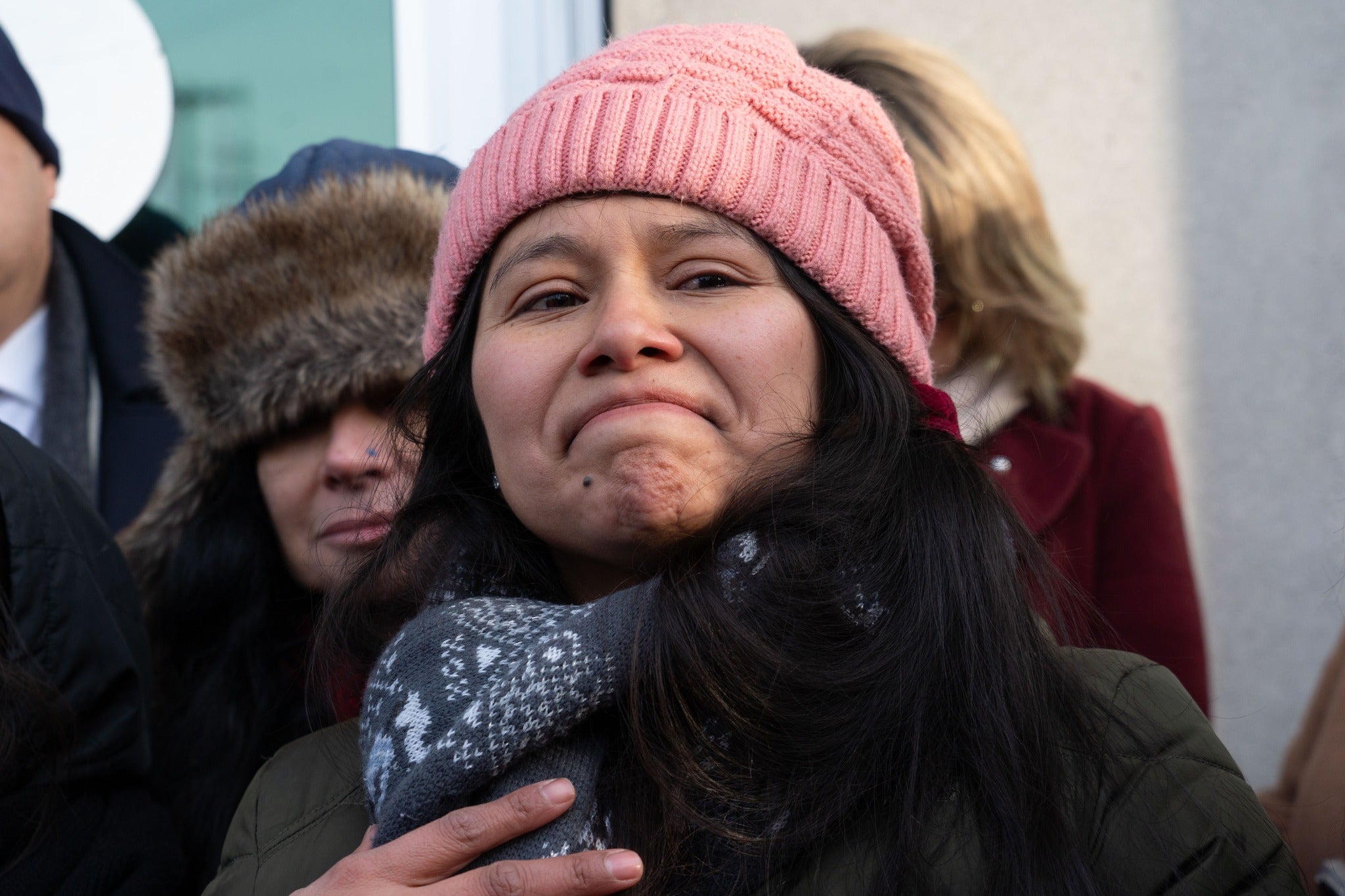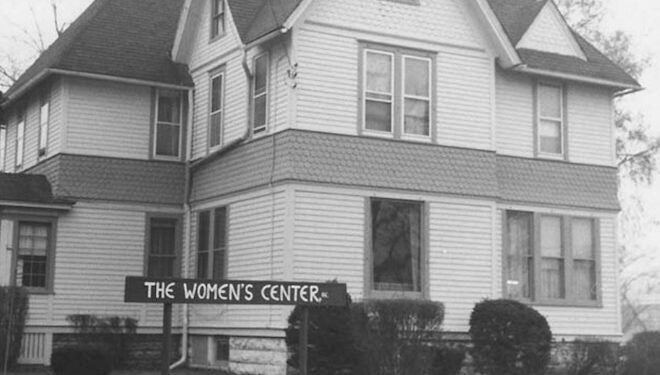A new statewide effort to fight human trafficking in Wisconsin will bring together law enforcement agencies, victim advocates and federal investigators in the hope of reaching those who are coerced into sex work or labor.
Attorney General Josh Kaul announced the creation of the Wisconsin Anti-Human Trafficking Task Force this month. At a press conference Thursday in Wausau, he said the new task force will help ensure that law enforcement agencies and victim advocates are working together to fight trafficking.
“That kind of collaboration is critical,” Kaul said. “Often, when law enforcement responds to a location where there’s human trafficking activity, the first response of a survivor is not to immediately want to cooperate.”
News with a little more humanity
WPR’s “Wisconsin Today” newsletter keeps you connected to the state you love without feeling overwhelmed. No paywall. No agenda. No corporate filter.
That may be because their captors are exploiting their vulnerabilities, Kaul said, such as mental health issues, opioid addiction or a lack of access to affordable housing.
A person is the victim of human trafficking when they’re forced or coerced into the sex trade or other labor. In some cases, victims of human trafficking for the sex industry may be minors. But in many cases, it may involve adult victims who in the recent past might simply have been charged with prostitution or drug crimes themselves.
Jan Miyasaki, executive director of the Madison-based shelter and victim advocacy group Project Respect, said trafficking is a complex crime.
“The victim may not realize that he or she is imprisoned,” Miyasaki said. “The coercion is often psychological, not necessarily physical, and the victim may appear ambivalent about their circumstance, and surviving alone and not trusting our society’s capacity to respond.”
Jane Graham Jennings, the director of The Women’s Community, a Wausau-based shelter, said that makes the work of the task force an important part of addressing human trafficking.
“Because trafficking is so complex and the survivors have so many layers of issues that we’re trying to help them with, we only do it well when we do it together,” Graham Jennings said.
Some Wisconsin communities have created their own local task forces on the issue, including Milwaukee and Superior. Under the administration of Republican Gov. Scott Walker, the state previously set up a human trafficking task force in 2015, but its funding expired after two years and it disbanded. Kaul, a Democrat, was elected attorney general in 2018. He said the new task force represents a separate effort to address the issue.
The state Department of Justice has previously sought to promote more awareness of signs of human trafficking, and has asked for the public’s help in identifying potential cases.
The new task force, which is funded through a grant from the federal Justice Department, includes members from victim-support agencies in Eau Claire and Milwaukee as well as the Oneida Tribal Police Department, the FBI and investigators from the federal Homeland Security Department.
Captain Melinda Pauls of the Wausau Police Department, who works on human trafficking cases, said building trust with victims is a necessary part of the police response.
“These individuals are victims of a crime,” Pauls said. “They’re victims, they have rights and we’re there for them.”
Most reports of trafficking crimes in Wisconsin center on sex work, according to data from the National Human Trafficking Hotline. But labor trafficking is another aspect of the problem. This month, a Wisconsin logging company was required to pay more than $1 million in back wages and civil penalties after federal prosecutors said its owners lied to workers from Mexico and Central America about job opportunities and defrauded them of pay. Kaul said both forms of trafficking will be a priority for state law enforcement.
Wisconsin Public Radio, © Copyright 2026, Board of Regents of the University of Wisconsin System and Wisconsin Educational Communications Board.







